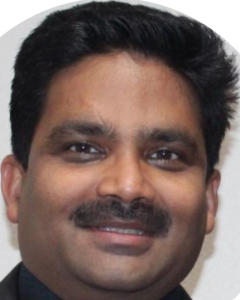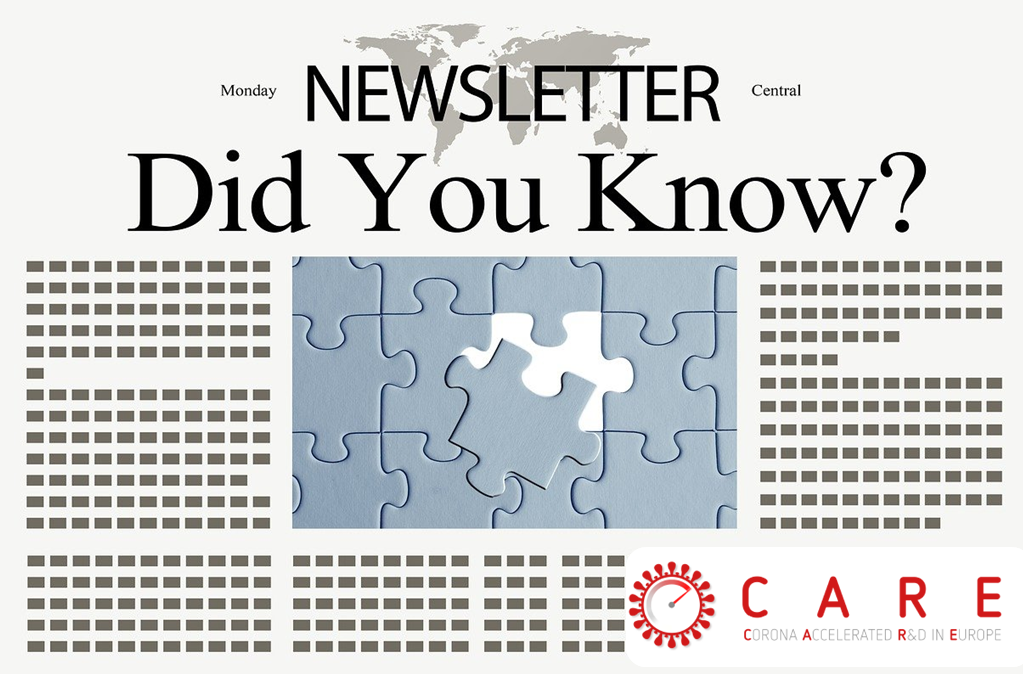One Year of CARE Against COVID-19 / Interview Part 2 /
On March 11, 2020 the novel coronavirus outbreak has been declared a pandemic. To combat the virus, multiple approaches are needed including therapeutic options that help those who are infected and those who are not able to be vaccinated or do not develop a strong immune response. In addition, there is a need for therapeutic approaches that help preparing for future outbreaks. Less than a month later, on April 1, 2020 the CARE consortium was formed to collaborate under as a public-private partnership to address these challenges as Europe’s largest research initiative in the fight against SARS-CoV-2 funded by the Innovative Medicines Initiative (IMI).
In this three-part interview series, the members of the CARE Executive Committee reflect on the first of five years of CARE, answering questions like:
- How was the team able to set up a consortium of 37 partners in a record time?
- How can a project of this size make notable progress albeit not working together face-to-face?
- How can CARE help to develop relevant therapeutic options?
Professor Yves Lévy as the academic coordinator, Marnix Van Loock as the EFPIA project leader and Kumar Singh Saikatendu as the project co-leader provided answers and insights below.
 |
 |
 |
Part 2 – WORKING TOGETHER: Professional collaborations becoming friendships
CARE is an initiative uniting scientists from academia, research centers, SMEs, EFPIA members and IMI2 Associated Partners in the fight against the coronavirus. In other words, it brings together a multi-disciplinary team with deep scientific knowledge, technical expertise and a strong commitment to jointly develop solutions at a fast pace. Within this framework, the CARE Executive Committee ensures scientific co-ordination and collaboration across the consortium and overall coordination and management of the project.
After one year of working together, how do you complement each other’s expertise in the Executive Committee?
Marnix van Loock: Our team combines different track records bringing relevant and complementary experience to the (virtual) table that cover the key aspects of our efforts. The respect and trust between us three, which was there from the start, enables us to have open, honest and thorough discussions on leading and coordinating CARE, combined with the opportunity to just pick up the phone and call each other whenever required. Also, we should not forget the critical role of the project management office colleagues supporting us in orchestrating and implementing all the efforts.
Yves Lévy: Indeed, the trust and confidence between Marnix, Kumar and myself was there immediately and quickly led to a working environment with a very good spirit, and a smooth and flexible way of communicating. This professional collaboration is turning into a friendship!
How do you enable and keep up the collaborative spirit across this large initiative of 37 partners while collaboration mostly takes place virtually?
Kumar Singh Saikatendu: At an overarching level, I think there are two key enablers of any successful partnership. The first one is operational – where logistical issues such as questions around funding, compounds or material shipment are sorted out quickly. The second one is about the scientific part – where research hurdles such as assay throughput, library creation or compound progression are smoothened effectively. The IMI CARE consortium demonstrated that despite the large size and multi-party nature of our partnership, these two enablers were handled successfully in the first year and lay the foundation to deliver the much-needed medicines.
Yves Lévy: And on a working level, there are from my point of view two main factors as well which enable this collaborative spirit. Firstly, we have created a meeting structure that enables a rapid exchange and alignment between the eight different CARE work packages. Secondly, Marnix, Kumar and myself as members of the Executive Committee are committed to offer a high degree of availability to our CARE partners and leaders of the work packages to provide advice and discuss any matters.
Marnix van Loock: Although everything is remote and done mostly from home, we recognize that we are in the same ‘lockdown’ situation and being there for each other is the cornerstone of this success. I agree with Yves, that alignment across the different work packages is key. Although we must admit, we look forward to the time when the circumstances will allow us to meet each other face to face and celebrate this story of trusting and close collaboration.
What are your aspirations in collaborating with other IMI2 projects or third parties?
Yves Lévy: The first year of CARE was all about the huge task of setting up and implementing this big project and enabling research progress to find solutions for COVID-19 patients as quickly as possible. At the same time 7 more IMI2 funded projects against different aspects of COVID-19 have been started. We are working to collaborate across these projects to foster the development of solutions to the pandemic even more.
Marnix van Loock: We are keen on building synergies and ensuring the maximization of opportunities to accelerate the development of antiviral assets, like potentially implementing diagnostic tools that were developed by other projects into our clinical trials, which will enable optimized execution of our trials.
Kumar Singh Saikatendu: And even beyond, CARE aspires to deliver effective medicines and to position them for clinical development. I hope as we deliver these clinical candidates, other global scientific organizations step up and participate as funders and by advancing these molecules into clinical development and beyond, for example through support in manufacturing, regulatory steps or clinical trial logistics.
This is the second part of the three-part interview with the CARE Executive Committee. Please find the other parts here.

